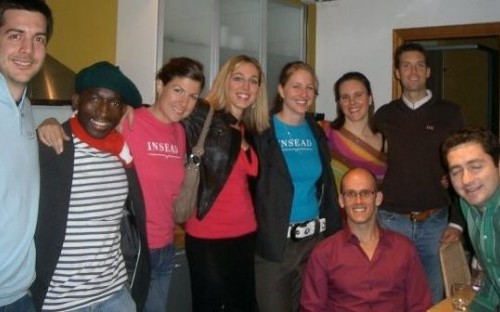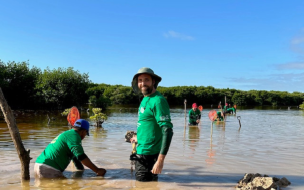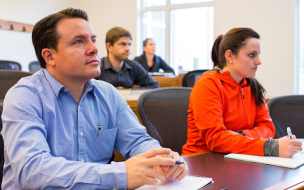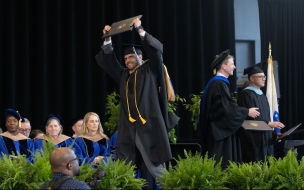Gilman admits that getting an MBA from a US business school would have been the obvious choice, and she did apply to McDonough School of Business (Georgetown University) and to Haas at Berkeley. There is one area, however, in which American schools don’t match their European counterparts says Gilman: diversity.
“At a US business school, 75 per cent of my classmates would have been American. At Insead they constitute only about 8 per cent.” She felt that working with people from different cultures, with diverse experiences and skill sets would be the perfect training for her dream career in a global transnational organization, says Gilman who obtained her first degree in French and urban studies.
Admittedly, her applying to Insead happened somewhat “on a whim”. When a friend (a Wharton MBA graduate) suggested she visited the campus, Gilman followed his advice without knowing much about the school. It was a visit to a macroeconomics class which convinced her that Insead was the right place for her: “The professor was amazing, lecturing about the challenges posed by emerging markets, and there were students from India, China and South America contributing their perspective: it completely drew me in,” says Gilman.
The students she met seemed curious and eager to explore roads less traveled, says the devoted poker player, who has spent a couple of years studying and doing research in Senegal.
Her last job at a consulting firm in Boston involved regular trips to six different continents, where she carried out research and advised companies on expatriate policies. After four years, however, she thought the job had lost its attractiveness: “I was doing very well in my position, but I wanted to understand more broadly how a company is run, and how business functions,” says Gilman. She decided that an MBA was the best move she could make.
Most Insead students share her adventurous streak, says Gilman. A classmate of was planning to go to the US after graduation, but spontaneously changed his mind and took a job in Dubai instead. “If leading an international life doesn’t appeal to you, then Insead is not the right place to go to,” points out the recent graduate who has just secured a job in the London office of at Standard and Poor’s, a credit ratings agency.
In fact, a nomadic lifestyle comes pretty naturally to Gilman. As the daughter of a flight assistant and an army official, she has moved around the world every four years since she was born. “I am drawn to new challenges, and at Insead I could get an idea of what it is like to do business in Israel, Latvia or Hong Kong. I knew it would be a once-in-a-lifetime experience.”
Facing cultural differences on a daily basis was part of her MBA degree. “Some of my classmates were very punctual, for instance, while Italians and Brazilians tended to be about an hour late to every appointment,” says Gilman, who was President of the Student Council during her degree. “The solution was what we called ‘Insead time’: everybody was always about half an hour late – so it worked out pretty well.”
Gilman was also attracted by the lack of competitiveness amongst the students. The only time they got really competitive was when they watched Spain play England in soccer, she says. “But on campus, people cooperate and help each other by sharing skills and knowledge.”
Looking back, the only downside of being at Insead was being thrown in at the deep end and having to pick things up quickly: “It’s a ten-month program which covers 70 per cent of [what’s in a] regular two-year MBA. Everything at Insead is intense from the day you arrive.”
RECAPTHA :
b4
c7
a3
90







